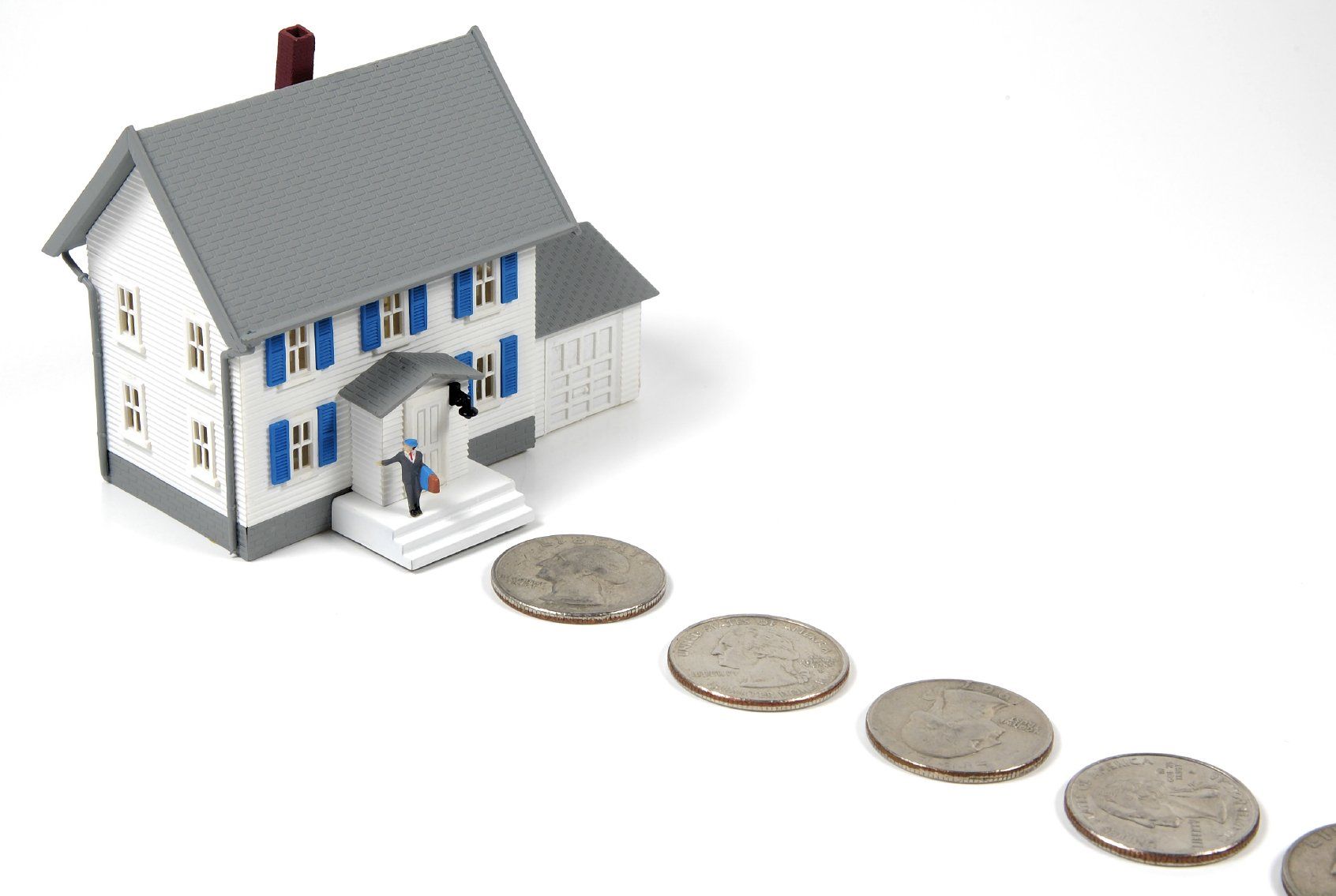Howe's New York: Brooklyn Real Estate News Recap
Robert Howe • May 19, 2022
This is a subtitle for your new post

On this new episode of Howe's New York, Brooklyn real estate attorney Robert Howe
discusses the top real estate news stories in Brooklyn.
This week's topics include the most expensive neighborhoods in New York, retail space rent increasing in Brooklyn, a new record Brooklyn skyscraper, and the return of Century 21.
Did you know there are 14 neighborhoods in the boroughs that are now more expensive than Manhattan? 13 are in Brooklyn! While retail property rents might be going back up Bob wonders if small businesses can take this as positive as the Real Deal postulates. Frank Sinatra opens our show with Brooklyn Bridge but it's his song New York about a city that never sleeps that seems like it needs to be revisited for a post-pandemic NYC. There's always a new record setting building in Brooklyn nowadays. Lastly, we recently spoke about the demise of Century 21 on 86th Street in Brooklyn but is it rising like a phoenix...in Manhattan?
Tune in to Howe's New York, only on BlogTalkRadio.

🏙️ Brooklyn Real Estate Market Report – Spring 2025 Brooklyn's real estate market continues to demonstrate resilience and growth as we move into the second quarter of 2025. Despite economic fluctuations, the borough has seen notable increases in home prices and sales activity, reflecting sustained demand across various property types. 📈 Market Overview Median Home Price: As of March 2025, the median home sale price in Brooklyn reached $995,066, marking a 3.8% year-over-year increase. ( ROCKET - HELP EVERYONE HOME ) Price Per Square Foot: The median price per square foot stood at $731, indicating steady appreciation in property values. Rocket - Help Everyone Home Sales Volume: In the first quarter of 2025, Brooklyn experienced a significant uptick in sales activity, with a total of 1,251 properties sold, representing a 119.9% increase compared to the previous year. ( PropertyShark 🏘️ Property Type Performance Townhouses : Townhouses have shown remarkable growth, with median prices increasing by 18.2% year-over-year to $1.2 million. ( Brick Underground ) Condos : The condo market has remained strong, with median sale prices reaching $1.05 million, a 5.1% increase from the previous year. ( Brownstoner Co-ops : Co-op sales have seen modest growth, with median prices rising to $450,000, up 5.9% year-over-year. ( baruhteam.com ) 📍 Neighborhood Highlights Northwest Brooklyn: This area has experienced significant appreciation, with townhouse prices increasing by 25.8% to $2.89 million. ( Brownstoner ) Williamsburg & Greenpoint: Both neighborhoods have seen median home prices climb by 21.8%, reaching $1.55 million, reflecting their growing popularity among buyers. ( Brownstoner ) 🔮 Market Outlook Looking ahead, Brooklyn's real estate market is poised for continued growth. Stable interest rates and a strong local economy are expected to sustain buyer demand. However, inventory remains tight, particularly in the co-op sector, which may lead to increased competition among buyers. 🏁 Final Thoughts Brooklyn's real estate market in 2025 showcases a dynamic landscape with opportunities for both buyers and sellers. With rising property values and active sales, it's an opportune time to engage with the market. Whether you're considering purchasing a home or selling your property, staying informed about current trends is essential. For personalized advice and insights with representation in buying or selling in Brooklyn's real estate market, feel free to reach out to our team of experienced professionals at the Law Office Of Robert Howe .

How to Prepare for Probate Court in New York Navigating probate court in New York can feel overwhelming, especially during an already emotional time. Whether you’re an executor, administrator, or heir, preparing properly can make the process smoother, faster, and less stressful. Here’s a brief guide on how to prepare for probate court in New York: 1. Gather Important Documents Before filing for probate, collect all necessary paperwork, including: -The original will (if one exists) -Death certificate -Financial statements (bank accounts, retirement funds, investments) -Real estate deeds -Lists of personal property and debts Having complete records upfront will streamline the court’s review and help avoid delays. 2. Identify and Notify Interested Parties The court requires that all heirs and beneficiaries be notified about the probate proceeding. You’ll need to: -Create a list of heirs (even if they aren't named in the will) -Obtain addresses and contact information -Prepare to send formal notices of probate Proper notification is a critical step to validate the probate process. 3. File the Petition for Probate Work with an attorney to: -Complete and file the Petition for Probate with the appropriate Surrogate’s Court (in the county where the decedent lived) -Submit the will and supporting documents -Pay any necessary court filing fees Your attorney will ensure that all paperwork is accurate and complies with New York probate rules. 4. Prepare for Executor Responsibilities If you are named the executor, you will have several legal duties, including: -Managing and safeguarding the estate’s assets -Paying debts, taxes, and final expenses -Distributing assets according to the will or court instructions Understanding your responsibilities in advance can help you stay organized and meet all legal requirements. 5. Consult an Experienced Probate Attorney Probate in New York can involve complicated procedures, especially if there are: -Disputes among heirs Claims from creditors -Issues with the validity of the will An experienced probate attorney can guide you through each step, advocate for you in court, and help avoid costly mistakes. Preparation is key to a smooth probate process. By organizing documents, understanding your duties, and working with a knowledgeable attorney, you can efficiently settle your loved one’s estate and honor their wishes. If you need assistance navigating probate court in New York, contact the Law Office Of Robert Howe today for trusted, compassionate legal support.

Types of Real Estate Transactions in New York The real estate market in New York is diverse and dynamic, offering a wide range of property types and transaction structures. Whether you’re a buyer, seller, investor, or developer, understanding the different types of real estate transactions is essential to navigating the market successfully. Here’s a brief overview of the most common types of real estate transactions in New York: 1. Residential Real Estate Transactions These involve the purchase and sale of properties used for living purposes. Common types include: -Single-family homes -Condominiums (condos) -Cooperatives (co-ops) -Multi-family properties (2–4 units) Each comes with its own legal structure, financing requirements, and potential board approvals (especially in co-ops). 2. Commercial Real Estate Transactions These involve properties used for business purposes, such as: -Office buildings -Retail spaces -Warehouses and industrial properties -Mixed-use buildings Commercial deals are often more complex and involve detailed lease agreements, zoning considerations, and income evaluations. 3. Leasing Transactions Leasing applies to both residential and commercial properties. Key leasing transactions include: -Residential leases for apartments or rental homes -Commercial leases for office, retail, or industrial space These transactions often require extensive negotiation of lease terms and landlord-tenant responsibilities. 4. Investment and Development Transactions Investors and developers may be involved in transactions such as: -Land acquisitions for future development -1031 exchanges for tax-deferred investment property swaps -Joint ventures or partnerships to develop residential or commercial projects These deals often require strategic planning, environmental review, and multiple layers of legal documentation. 5. Refinancing and Mortgage Transactions Refinancing involves replacing an existing mortgage with a new one, often to secure a better interest rate or access home equity. An attorney ensures proper document review, title updates, and compliance with lender requirements. Each type of real estate transaction in New York has its own legal requirements, timelines, and potential pitfalls. Whether you’re buying your first home or negotiating a commercial lease, working with an experienced real estate attorney is essential for protecting your interests and ensuring a successful outcome. Contact the Law Office Of Robert Howe today for personalized legal guidance in your next real estate transaction.

The Role of Your Attorney in a Real Estate Transaction in New York Buying or selling real estate in New York is a significant legal and financial transaction—and unlike many other states, attorney involvement is customary and highly recommended. Whether you’re a first-time homebuyer or an experienced seller, having an experienced real estate attorney on your side is essential for protecting your interests and ensuring a smooth process from contract to closing. 1. Reviewing and Negotiating the Contract In New York, the seller’s attorney typically prepares the initial contract, but nothing is finalized until both parties’ attorneys review and agree to the terms. Your attorney will: -Explain your rights and obligations -Negotiate terms such as contingencies, closing dates, and repair obligations -Ensure the contract protects your interests and complies with New York law 2. Conducting Due Diligence For buyers especially, due diligence is a critical step. Your attorney will: -Order and review a title search to ensure the property has no liens, judgments, or ownership issues -Examine offering plans and financial statements if purchasing a co-op or condo -Coordinate with inspectors, lenders, and the title company to keep the process on track 3. Managing Legal Documentation and Compliance Your attorney ensures that all legal documents are properly prepared and executed, including: -The deed or proprietary lease -Transfer tax forms and disclosure documents -Mortgage documents and title insurance policies -They also ensure compliance with local and state regulations, including tax laws and building requirements. 4. Representing You at the Closing At closing, your attorney will: -Review and explain all closing documents -Make sure funds are correctly disbursed -Ensure the transfer of ownership is properly recorded with the county -Address last-minute issues or disputes that may arise In New York, your attorney plays a central role in every stage of the real estate transaction. From negotiating the contract to ensuring a clean title and finalizing the sale, legal guidance is crucial for protecting your investment and avoiding costly pitfalls. Thinking of buying or selling a property in New York? Contact the Law Office Of Robert Howe today for trusted legal representation every step of the way.

Types of Wills in New York: What You Need to Know Creating a will is one of the most important steps you can take to protect your loved ones and ensure your assets are distributed according to your wishes. In New York, several types of wills are legally recognized, each with specific requirements and purposes. Understanding the differences can help you choose the best option for your estate plan . 1. Attested (Formal) Will This is the most common type of will in New York. It must meet the following requirements: -Be in writing -Signed by the testator (the person making the will) -Witnessed by two individuals, who must also sign the will -An attested will can distribute assets, name guardians for minor children, and appoint an executor. It's considered the most reliable and court-accepted format. 2. Holographic Will A holographic will is a handwritten will that is not witnessed. In New York, this type of will is only valid in limited circumstances, such as: -Made by a member of the armed forces during active duty -Made by a mariner at sea Even in these cases, the will is only valid for a limited period (typically one year after leaving service or returning from sea). 3. Nuncupative Will (Oral Will) A nuncupative or oral will is spoken rather than written. Like holographic wills, this is only valid in New York under very specific conditions: -Made by a person in imminent danger of death -Generally applies to military personnel or mariners at sea These wills are rarely used and are subject to strict scrutiny by the court. 4. Pour-Over Will A pour-over will works in conjunction with a revocable living trust. It ensures that any assets not already titled in the name of your trust at the time of your death are "poured over" into the trust and distributed according to its terms. This type of will is part of a comprehensive estate plan. 5. Joint Will While not commonly used, a joint will is a single will created by two people, typically spouses, to outline how assets will be distributed. New York courts often discourage joint wills due to potential complications, especially after one spouse passes away. New York law allows for several types of wills, but a properly drafted and witnessed formal will is usually the best way to ensure your wishes are honored and your estate is handled smoothly. If you want to protect your legacy and your loved ones, having a will that complies with New York’s legal standards is essential. Ready to create or update your will? Contact the Law Office Of Robert Howe today for personalized guidance and peace of mind.

Steps to Set Up a Legal Trust in New York Setting up a legal trust in New York is a smart way to manage and protect your assets, provide for loved ones, and avoid the delays of probate. Whether you're planning your estate , caring for a family member with special needs, or protecting your wealth, a trust can offer flexibility and peace of mind. Here are the key steps to creating a trust in New York: 1. Decide What Type of Trust You Need There are several types of trusts, each designed for different goals: - Revocable Living Trust – Allows you to retain control and make changes during your lifetime. Often used to avoid probate. - Irrevocable Trust – Cannot be changed after it's created but offers stronger asset protection and potential tax benefits. -Special Needs Trust – Ensures care for a disabled loved one without affecting their eligibility for government benefits. -Testamentary Trust – Created through your will and takes effect after death. An experienced estate planning attorney can help determine which type best suits your needs. 2. Choose a Trustee The trustee is the person or institution responsible for managing the trust assets and carrying out your instructions. You can serve as your own trustee (for revocable trusts), or appoint someone you trust—such as a family member, friend, or professional fiduciary. 3. Draft the Trust Document Your attorney will draft a trust agreement, which includes: -The name of the trust and date of creation -Your (the grantor’s) intentions and instructions -The trustee’s powers and responsibilities -The beneficiaries who will receive assets -Rules for distributing and managing the assets This document must comply with New York trust law to be valid and enforceable. 4. Fund the Trust A trust is only effective if it is funded—meaning assets are transferred into it. This can include: -Real estate -Bank accounts -Investments -Life insurance policies -Business interests Your attorney will guide you through retitling these assets in the name of the trust. 5. Maintain and Update the Trust Once your trust is established, it should be reviewed periodically, especially after major life events like marriage, divorce, births, or significant financial changes. You may need to revise the trust or update the list of beneficiaries or trustees. Creating a trust in New York involves careful planning and legal precision, but it’s one of the most effective tools for protecting your legacy. Working with an experienced estate planning attorney ensures that your trust is properly structured and meets your goals. Ready to protect your future? Contact the Law Office Of Robert Howe today to discuss your estate planning needs and get started on setting up a trust tailored to you.

Top 3 Things You Can Do to Prepare to Sell Your Home in New York Selling a home in New York —whether in the city or upstate—requires more than just putting up a "For Sale" sign. With a competitive market and discerning buyers, proper preparation can help you sell faster and for the best possible price. Here are the top three things you can do to get your home ready for a successful sale. 1. Get Your Paperwork in Order Before listing your home, make sure you have the essential documents ready. These may include: -The deed to your property -Property tax records -Utility bills and maintenance costs -For condos or co-ops: building financials, bylaws, and board rules You’ll also want to consult a real estate attorney early in the process, as they will draft the contract of sale and help clear any legal or title issues. 2. Make Repairs and Enhance Curb Appeal Small updates can make a big difference. Consider: -Fixing minor repairs like leaky faucets, squeaky doors, or chipped paint -Decluttering and deep cleaning your home to make it more inviting -Boosting curb appeal with landscaping, fresh paint, or a clean entryway A clean, well-maintained home helps buyers see the value—and imagine themselves living there. 3. Price Strategically with a Real Estate Agent Work with a knowledgeable New York real estate agent to set the right price based on: -Comparable sales (comps) in your area -Current market trends -Unique features of your home Pricing too high can turn away buyers, while pricing too low leaves money on the table. A strategic listing price will attract attention and encourage competitive offers. Selling your home in New York is a big step, but with the right preparation, you can make the process smooth and rewarding. By organizing your paperwork, making thoughtful improvements, and pricing smartly, you’ll be ready to impress buyers and close with confidence. Need help with the legal side of selling your home? Contact the Law Office Of Robert Howe today for trusted legal guidance from contract to closing.

Co-op vs. Condo: What’s the Difference in New York Real Estate? If you’re buying property in New York , one of the first choices you’ll encounter is whether to purchase a co-op or a condo. While both offer homeownership , they differ in structure, ownership rights, and responsibilities. Here's a quick breakdown of the key differences to help you decide which is right for you. 1. Ownership Structure Co-op (Cooperative Apartment): When you buy a co-op, you're purchasing shares in a corporation that owns the entire building. Your shares give you the right to occupy a specific unit through a proprietary lease. Condo (Condominium): When you buy a condo, you own the real property—your individual unit—along with a percentage of the common areas (hallways, lobby, etc.). 2. Approval Process Co-op: Requires board approval, which can be rigorous. The co-op board can reject buyers for financial or even subjective reasons, and often requires interviews and extensive financial disclosure. Condo: More buyer-friendly—there’s usually no board approval, just a right of first refusal, which is rarely exercised. 3. Financing and Costs Co-op: Often requires a larger down payment (commonly 20–30% or more). Maintenance fees include taxes and building costs. Co-ops generally don’t allow subletting or have strict limits. Condo: Usually allows for more flexible financing and lower down payments. Owners pay common charges plus individual property taxes. Condos are generally easier to rent out or use as investment properties. 4. Rules and Restrictions Co-op: Typically has stricter rules about renovations, guests, subletting, and even who can live in the unit. The board has greater control over day-to-day building operations. Condo: Offers more autonomy. Owners have more freedom to renovate, rent out, or sell without board interference (though rules still apply). 5. Price and Availability Co-ops: Tend to be less expensive than condos on a square-foot basis but come with more restrictions. Condos: Generally cost more, but offer greater flexibility and are more attractive to investors and foreign buyers. Choosing between a co-op and a condo in New York depends on your goals, finances, and lifestyle. If you’re looking for a long-term primary residence and a community-focused environment, a co-op might suit you. If you want more flexibility or plan to rent out your unit, a condo may be the better option. Need help navigating your purchase? Contact the Law Office Of Robert Howe today for trusted legal guidance in New York’s real estate market.

When Is the Best Time to Involve an Attorney in a Real Estate Transaction in New York? In New York, real estate transactions are legally and financially complex—and unlike many other states, attorney involvement is customary and often essential. Whether you're buying, selling, or refinancing property, knowing when to involve a real estate attorney can help you avoid costly mistakes and ensure a smooth closing. Here’s when you should bring in an attorney during a New York real estate transaction: 1. Before Signing the Contract of Sale This is the most critical point to involve an attorney. In New York, the seller’s attorney usually prepares the first draft of the contract. Before you sign it, your attorney should: -Review and negotiate the terms -Ensure all key protections and contingencies (inspection, financing, clear title) are included -Explain your rights and obligations clearly -Never sign a contract without legal review. 2. During the Due Diligence Period After the contract is signed but before closing, your attorney will: -Conduct or review a title search -Ensure there are no outstanding liens, violations, or legal claims -Coordinate with the title company and lender -Help address issues uncovered during inspections 3. When Dealing With Co-ops or Condos Buying a co-op or condo involves unique legal documents and board review. An attorney will: -Examine the offering plan, financials, and board minutes -Ensure compliance with building rules and restrictions -Guide you through the board approval process (for co-ops) 4. At the Closing Table Your attorney will represent you at closing to: -Review all documents (deed, mortgage, transfer taxes, etc.) -Ensure all payments are made properly -Confirm the legal transfer of ownership and recording of documents The best time to involve a real estate attorney in New York is early—before you sign anything. From negotiating your contract to ensuring a clear title and successful closing, an experienced attorney will protect your interests every step of the way. Ready to buy or sell property in New York? Contact the Law Office Of Robert Howe today to make sure your transaction is handled with clarity, confidence, and legal precision.

How Tariffs Can Impact New York Real Estate Tariffs—taxes imposed on imported goods—may seem like a global trade issue, but they can have very real, local consequences, especially in markets like New York real estate . Whether you're a homeowner, developer, investor, or buyer, understanding how tariffs can affect the cost and pace of real estate projects is key to making informed decisions. 1. Increased Construction Costs Many building materials used in New York construction—such as steel, aluminum, and lumber—are often imported. When tariffs are placed on these goods, material costs rise, which can: -Drive up the cost of new developments -Delay renovation or construction projects -Increase overall housing prices due to higher build costs 2. Impact on Commercial Development Tariffs can significantly affect commercial real estate projects, particularly large-scale developments and infrastructure work. Developers may be forced to: -Postpone or scale back projects -Pass increased costs on to tenants through higher rent -Delay timelines due to budget overruns 3. Reduced Foreign Investment New York real estate has traditionally attracted international investors, especially in luxury residential and commercial properties. However, ongoing trade tensions and retaliatory tariffs can: -Discourage foreign investment -Shift global capital to other, less impacted markets -Add uncertainty to long-term investment strategies 4. Supply Chain Disruptions Tariffs can disrupt the global supply chains that developers rely on for fixtures, appliances, and finishing materials. This can lead to: -Project delays -Unpredictable budgeting -Lower availability of certain materials, which may affect design and quality 5. Broader Economic Ripple Effects Tariffs can also impact the overall economy, influencing job growth, consumer confidence, and interest rates. A slowdown in the broader economy may soften real estate demand, particularly in high-cost markets like New York City. While tariffs are not directly tied to buying or selling a home, they can significantly shape the cost, timing, and viability of real estate development and investment in New York. Staying informed about economic policy and working with knowledgeable professionals—legal, financial, and real estate—can help you navigate these changes with confidence. Need guidance on how market trends and economic shifts could affect your real estate goals? Contact the Law Office Of Robert Howe today for informed, strategic legal support.
